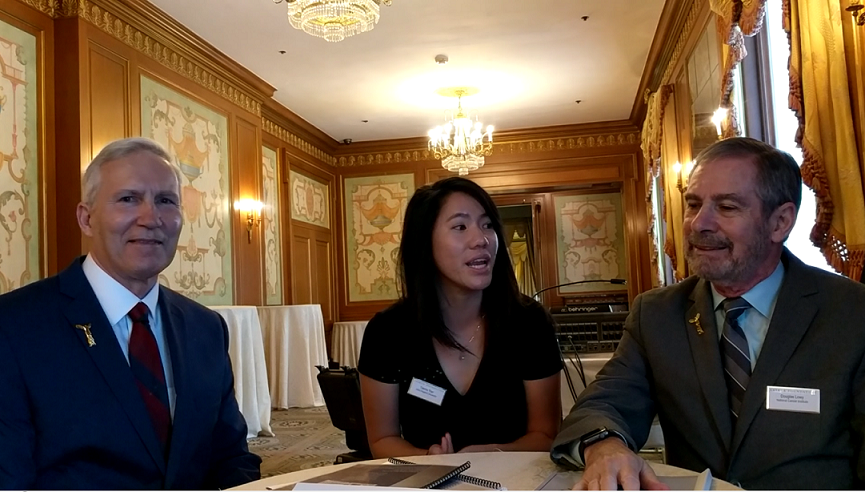
Tammy Tran with 2017 Lasker~DeBakey Clinical Medical Research Award winners, John T. Schiller (left) and Douglas R. Lowy (right).
Tammy Tran with 2017 Lasker~DeBakey Clinical Medical Research Award winners, John T. Schiller (left) and Douglas R. Lowy (right).
Trammy Tran won 2nd Place in the 2017 Essay Contest with her essay “Science is everywhere: unexpected science encounters in the course of everyday life.” She is currently a PhD candidate in the Psychological and Brain Sciences Program at The Johns Hopkins University. In this Q&A, Tran interviews 2017 Lasker~DeBakey Clinical Medical Research Award winners, Douglas R. Lowy and John T. Schiller.
Tammy Tran: As winners and well-established scientists, what do you think is the easiest way to communicate and disseminate information to the public?
John Schiller: First of all, you can disseminate the information but it’s not necessarily easy to disseminate the right information to the right people. I would say you should use many different ways of doing it. It’s not one size fits all and there isn’t just one way to do it.
Douglas Lowy: I really agree with John. It also requires reinforcement. Just like anything you want to learn and understand requires getting the message out more than once. Science really must have a strong foundation in evidence-based research and that I feel is its strongest suit. Also, I will emphasize how we think we know things now that we didn’t know before. The correct answer today might not turn out to be the correct answer tomorrow. But that doesn’t mean that science is flawed. It’s imperfect like any other human endeavor.
JS: The other thing I would add is that more and more it’s important that we counter misinformation on the internet. Most people get their information from the internet and if they google something like HPV vaccine, half of it will be misinformation and half of it will be good information. How do they know what’s true and what is not true? We have to do better at educating the public to go to reputable sources for their information. Also, I think we have to be more efficient at countering misinformation right at the beginning and not let it sit there for too long without a response.
TT: Great answers, thank you!
